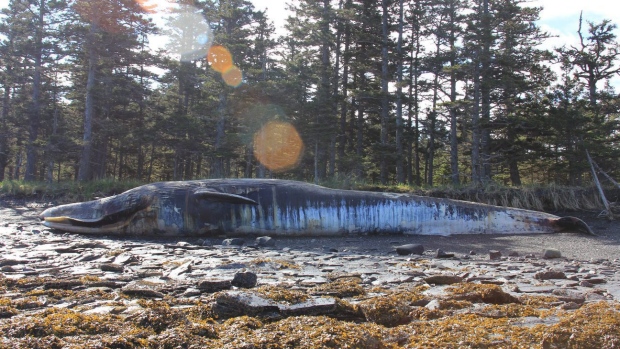-
Tips for becoming a good boxer - November 6, 2020
-
7 expert tips for making your hens night a memorable one - November 6, 2020
-
5 reasons to host your Christmas party on a cruise boat - November 6, 2020
-
What to do when you’re charged with a crime - November 6, 2020
-
Should you get one or multiple dogs? Here’s all you need to know - November 3, 2020
-
A Guide: How to Build Your Very Own Magic Mirror - February 14, 2019
-
Our Top Inspirational Baseball Stars - November 24, 2018
-
Five Tech Tools That Will Help You Turn Your Blog into a Business - November 24, 2018
-
How to Indulge on Vacation without Expanding Your Waist - November 9, 2018
-
5 Strategies for Businesses to Appeal to Today’s Increasingly Mobile-Crazed Customers - November 9, 2018
Three times normal number of whale deaths in northwestern coastal waters
Since May, NOAA said 11 fin whales, 14 humpback whales, one gray whale and four unidentified cetaceans have been found stranded around the islands of the western Gulf of Alaska and the southern shoreline of the Alaska Peninsula.
Advertisement
“NOAA Fisheries scientists and partners are very concerned about the large number of whales tranding in the western Gulf of Alaska in recent months”, said Dr. Teri Rowles, a marine mammal health and stranding response coordinator. “Bio toxins will be a top priority, but not the only priority that we’ll be looking at to rule in or rule out whether it’s playing a role in this investigation and these mortalities”.
Whales are turning up dead along the Alaska coast in alarming numbers, and scientists so far have no idea what’s causing it.
But NOAA investigators aren’t ruling anything out – yet.
About 1,200 fin whales, 5,000 humpback and 18,000 grey whales are in the northern Pacific Ocean, according to a 2013 NOAA survey.
This also isn’t the first time NOAA has declared a large-scale whale mortality event. Six unusual mortality events for large have been declared in the US since 1992.
NOAA asks that anyone who spots a dead whale or a living distressed whale call the Alaska Marine Mammal Stranding Hotline at 877-925-7773, or contact the U.S. Coast Guard on VHF Channel 16.
Whale strandings in Alaska this year.
A number of the stranded whales are floating out to sea and not beached, making it more hard to take proper samples.
Numerous carcasses discovered during this unusual mortality event have been too decomposed or located in inaccessible areas too risky for human investigators to traverse. “So the food out there for these large whales is becoming poisonous”. “It is critical that the public and mariners report large whale mortalities or animals that they see in distress as soon as possible so that the network can either document or get access or track the carcasses”.
Advertisement
The agency is also asking that the public not approach or touch the whale.




























